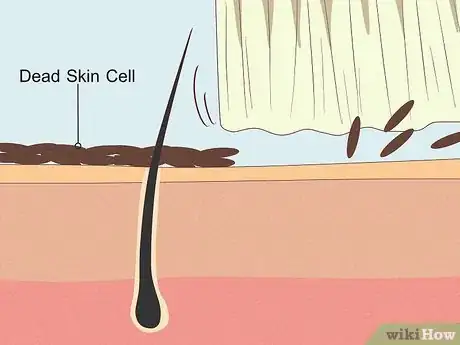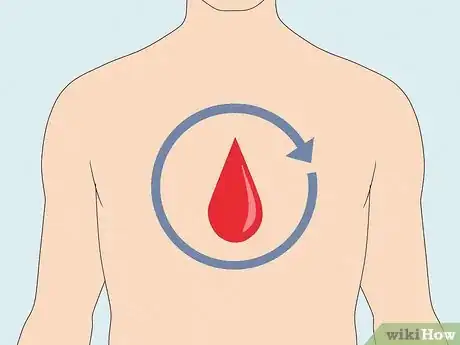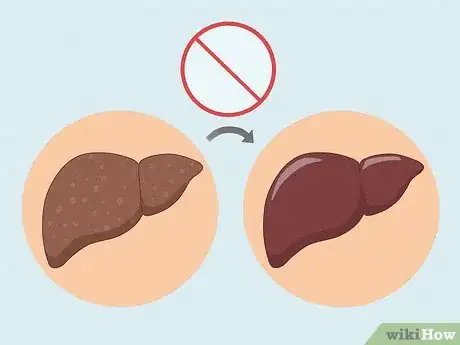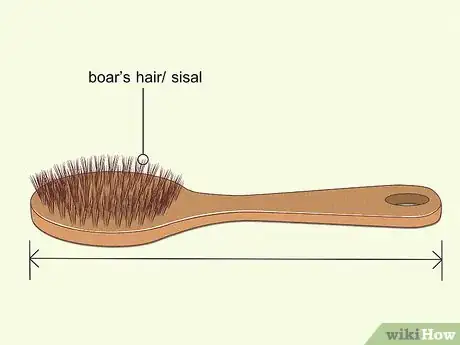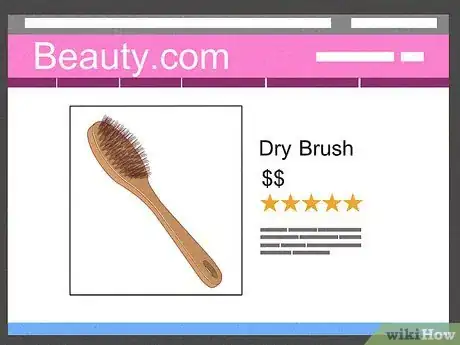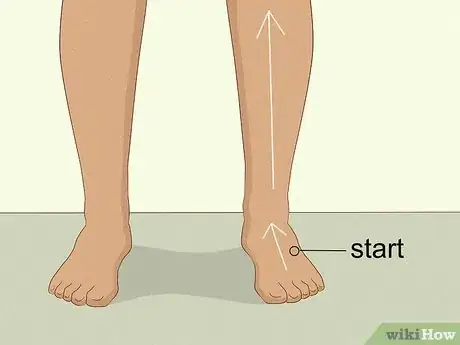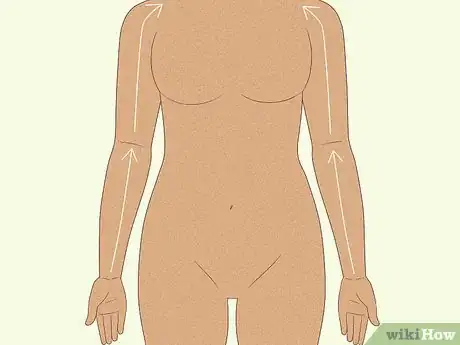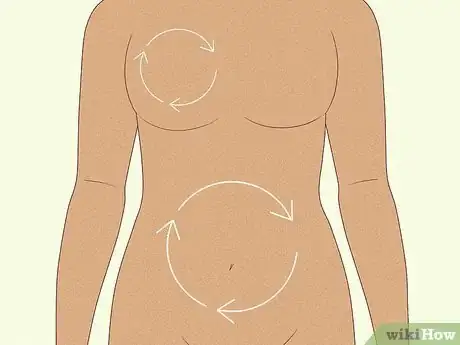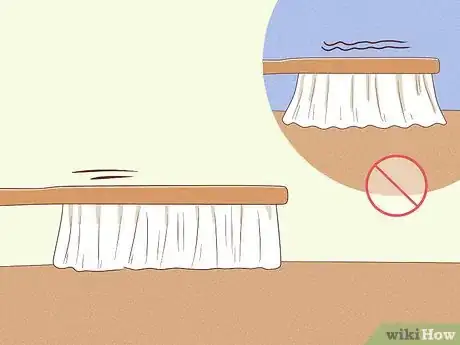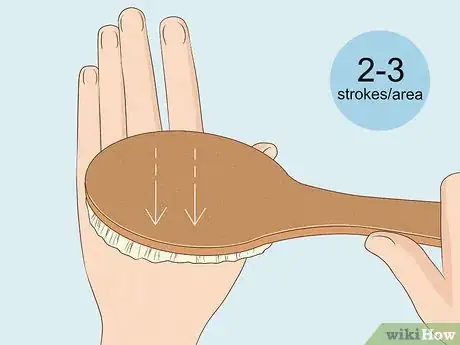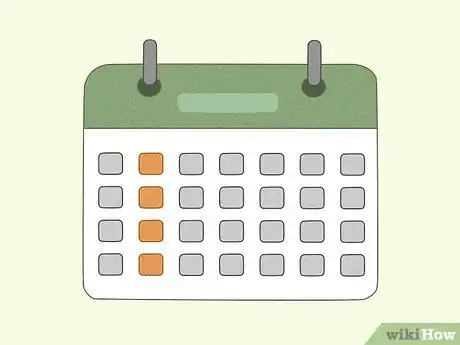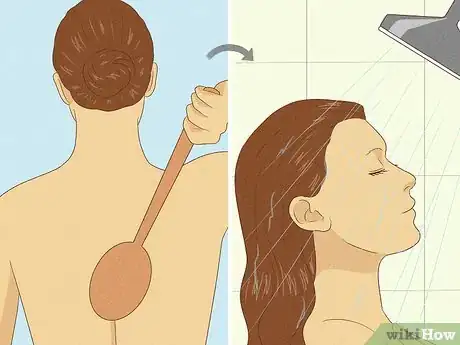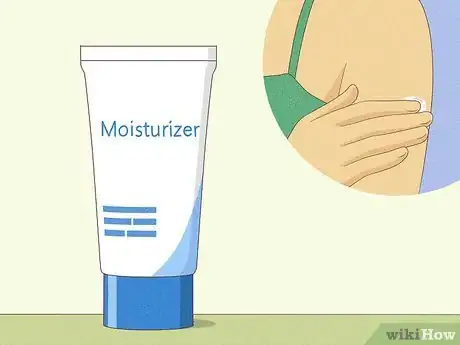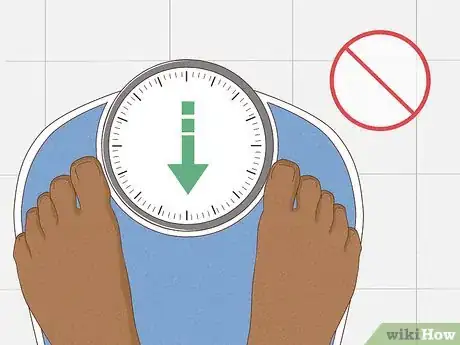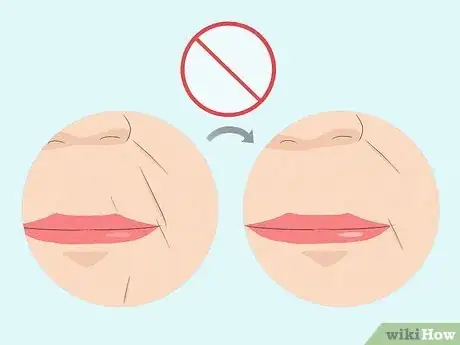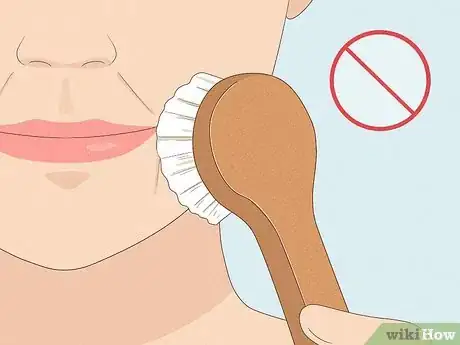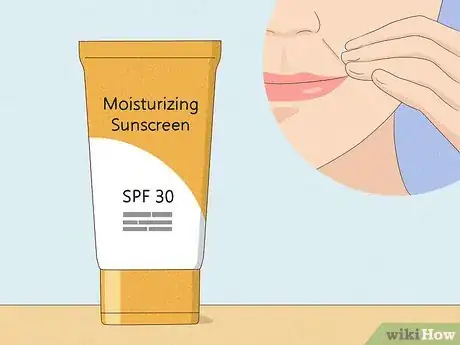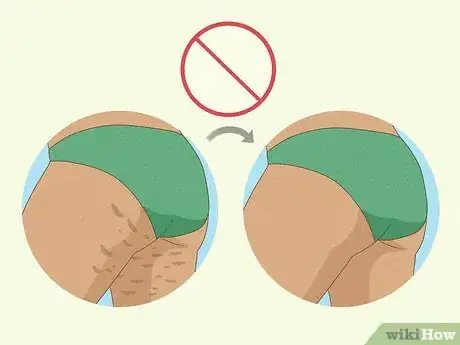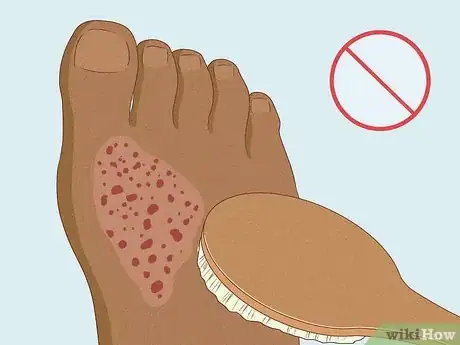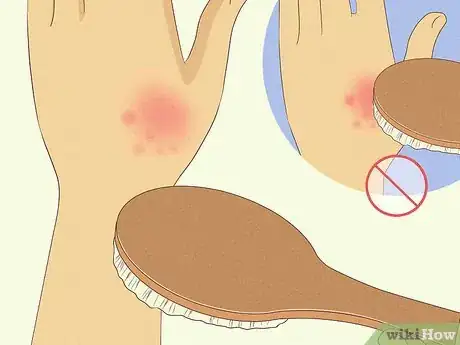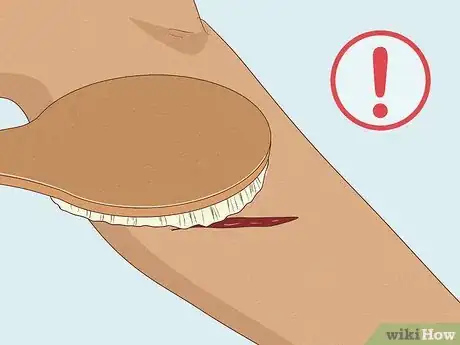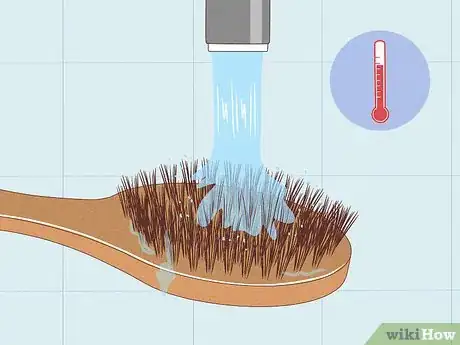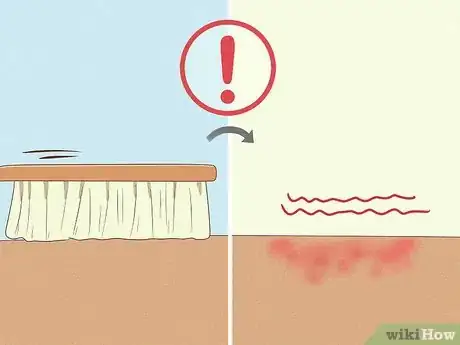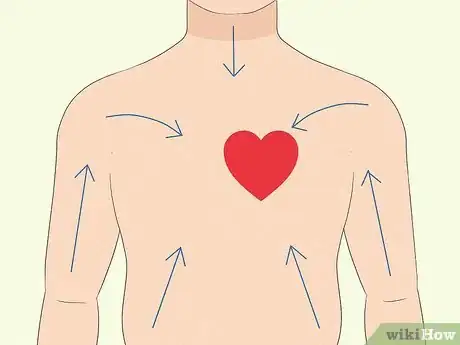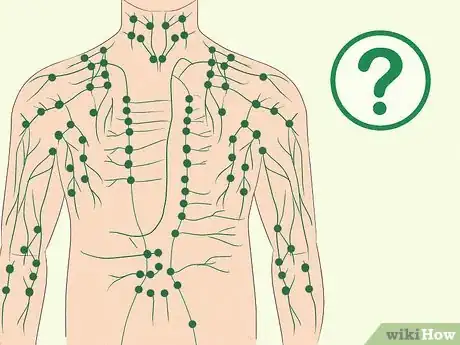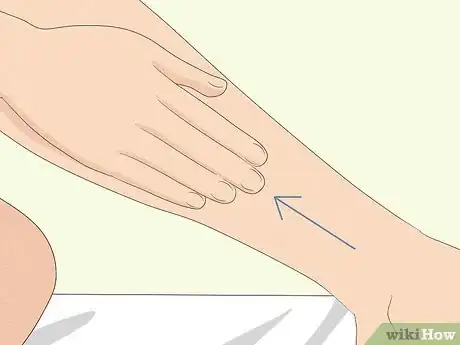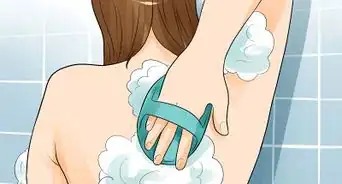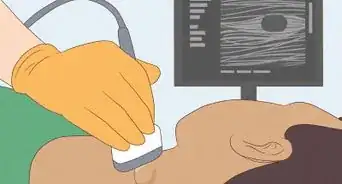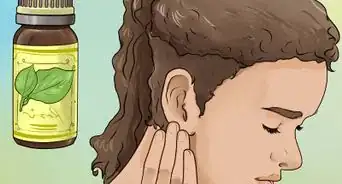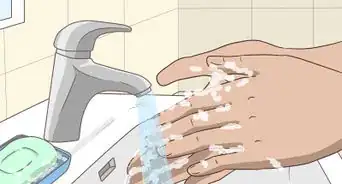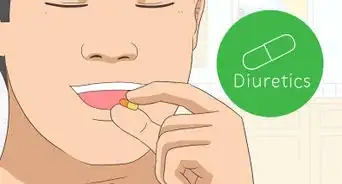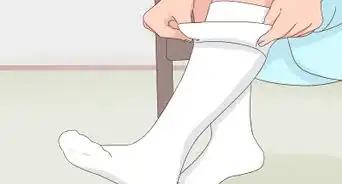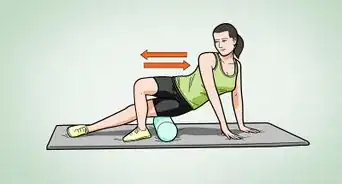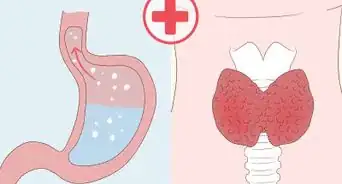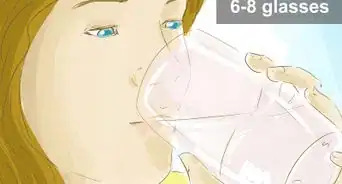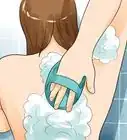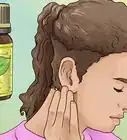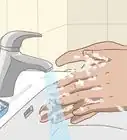This article was co-authored by Chris M. Matsko, MD and by wikiHow staff writer, Megaera Lorenz, PhD. Dr. Chris M. Matsko is a retired physician based in Pittsburgh, Pennsylvania. With over 25 years of medical research experience, Dr. Matsko was awarded the Pittsburgh Cornell University Leadership Award for Excellence. He holds a BS in Nutritional Science from Cornell University and an MD from the Temple University School of Medicine in 2007. Dr. Matsko earned a Research Writing Certification from the American Medical Writers Association (AMWA) in 2016 and a Medical Writing & Editing Certification from the University of Chicago in 2017.
There are 16 references cited in this article, which can be found at the bottom of the page.
wikiHow marks an article as reader-approved once it receives enough positive feedback. In this case, 86% of readers who voted found the article helpful, earning it our reader-approved status.
This article has been viewed 269,100 times.
Just like the name suggests, dry brushing involves gently rubbing your skin with a dry body brush. Some health and beauty gurus claim that dry brushing has a wealth of benefits beyond just exfoliating your skin—from getting rid of cellulite to helping your body release toxins. However, there’s not a lot of great evidence to support all of these claims. If you’re wondering what the hype is really all about, read on. We’ll answer your questions about what dry brushing is best for and how to do it safely.
Steps
What are the benefits of dry brushing?
-
1Dry brushing is great for exfoliating dry skin. If your skin is a bit dry, going over it gently with a dry brush can loosen dead skin and flakes. It can also help unclog your pores.[1]
-
2It may help improve circulation. Like any form of massage, dry brushing gets your blood flowing. This can temporarily brighten the appearance of your skin.[2]Advertisement
-
3
-
4There’s not a lot of evidence to support other claims. Some proponents claim that dry brushing can detoxify your body, stimulate your lymphatic system, get rid of cellulite, break up fat deposits under your skin, or even improve your digestion and kidney function. However, there’s no research out there to back up any of these ideas.[5]
- If you have any health concerns, ask your doctor about the most effective treatment options—and whether dry brushing is likely to help. They might be able to recommend other natural or holistic remedies that are backed by science.
What kind of brush should I use?
-
1Use a large brush with firm, natural bristles. Firmer bristles exfoliate more deeply, but you might want to use a softer brush on sensitive areas. Long-handled shower or bath brushes work well, since they make it easier to get at hard-to-reach areas, such as your back.[6]
- Look for a brush with bristles made from materials such as boar’s hair or sisal.
- You may find that a brush with a combination of firmer and softer bristles feels best.
- Dermatologists don’t recommend using a dry brush on your face. But, if you choose to try it, select a smaller brush with extra-soft bristles that’s marketed for facial use.[7]
-
2Buy a dry brush from a health and beauty store or online. You can buy dry brushes from most stores that sell cosmetics or skincare products. Dry brushes may be labeled “dry brush,” “dry body brush,” “detox brush,” or something similar.
- If you can’t find a dry brush in a local store, order one online. Do a search for “dry body brush.” Check the item description and read customer reviews to find a brush that meets your needs.
What’s the best way to dry brush for exfoliation?
-
1Start from your feet and work your way up. Dry brushing is a technique best used on your arms, legs, and torso. Start with your feet or ankles and work your way up from there.[8]
- As the name suggests, it’s best if both your skin and the brush are dry.
-
2Use long, upward strokes on your arms and legs. When you brush your limbs, go lengthwise from the end of your limb towards your body. For instance, start at your hand or wrist and sweep the brush upwards along your arm towards the shoulder.[9]
-
3Brush your torso in circular strokes. When you’re brushing your belly, chest, and back, switch to small, circular movements. Some holistic healthcare experts recommend using clockwise motions for the best results.[10]
-
4Be gentle so you don’t irritate your skin. Scrubbing hard can cause tiny micro-tears in your skin, leading to inflammation or even infections. Keep your strokes light and switch to a softer brush if you’re still getting irritated.[11]
- Use lighter pressure in sensitive areas, like your breasts, neck, or belly.[12]
Do you have to shower after dry brushing?
-
1Yes, showering washes away dead skin and replenishes moisture. When you dry brush, it loosens up dirt and dead cells on the surface of your skin. Hop in the shower when you’re done to rinse away the gunk so it doesn’t continue to sit on your skin and clog it up.[17]
-
2
Can dry brushing reduce wrinkles?
-
1Probably not, but it may temporarily reduce their appearance. Since dry brushing boosts circulation, it may briefly plump up your skin and make it look smoother. The increased blood flow to your skin will also give it a youthful glow. However, these effects don’t last very long after you finish brushing.[20]
- One small study from 2017 found that massage, when combined with an anti-wrinkle cream, could significantly improve the overall appearance of skin and minimize wrinkles over time. However, this study doesn’t deal with dry brushing specifically.[21]
-
2Brushing your face to treat wrinkles could do more harm than good. The skin on your face is more delicate and sensitive than the skin on the rest of your body. Don’t try to treat facial wrinkles by dry brushing them. You could irritate and ultimately damage your skin.[22]
-
3Moisturizers are a more effective treatment for wrinkles. To combat wrinkles naturally, most dermatologists recommend moisturizing your skin daily and protecting it from sun damage. Use a moisturizing sunscreen with an SPF of at least 30.[23]
- Retinoid creams can be especially helpful for keeping your skin youthful and preventing the appearance of new wrinkles.[24]
Will dry brushing get rid of cellulite?
-
1
-
2Eat healthy and exercise to minimize the appearance of cellulite. Eating a healthy diet rich in vegetables, whole grains, and fiber may improve the overall appearance of your skin and make your cellulite less noticeable. Getting exercise can also help, since toning up your muscles can reduce the appearance of dimpled or bumpy skin.[27]
- Retinol creams can also temporarily thicken your skin and minimize the appearance of cellulite.[28]
Do dermatologists recommend dry brushing?
-
1Some recommend it as a form of exfoliation. Most dermatologists won’t tell you to avoid dry brushing, although they may advise keeping your expectations realistic. For instance, it probably won’t get rid of toxins, banish wrinkles, or melt away cellulite bumps.[29] Some doctors do recommend it as a good way to keep dry skin smooth and supple, however.[30]
- While there are no studies to back it up yet, it’s possible that dry brushing could help with certain skin conditions, such as keratosis pilaris. Your dermatologist may recommend trying it to see if it works for you.
-
2Doctors recommend avoiding it if you have damaged skin. Dry brushing isn’t safe for everyone. If your skin is extremely sensitive, burned, or broken, don’t dry brush in the affected areas. Your doctor may also advise you to avoid dry brushing if:[31]
- Your skin is infected or inflamed.
- You have eczema or severely dry skin.[32]
- You have cellulitis (a type of skin infection).
- You have blisters, sores, rashes, or lesions on your skin.
- The area you want to brush has warts, moles, or any other raised bumps.
Can dry brushing make you sick?
-
1It could lead to an infection if you brush broken skin. Dry brushing can introduce bacteria into cut, scraped, or irritated skin. Brushing too often or not gently enough can also tear your skin and make it more prone to infections.[34]
- Always use a clean brush, and don’t share your brush with other people.
- Never use a dry brush on skin that’s already infected.
-
2Clean your brush after using it to reduce the risk of infections. After dry brushing, simply rinse the brush with warm water and hang it up to dry.[35] If you’d like to get it extra clean, gently swirl the bristles in a mixture of warm water and 1 tablespoon (15 mL) of baby shampoo or a mild clarifying shampoo.[36]
- Dermatologists recommend using shampoo rather than ordinary soap to avoid damaging cosmetic brushes with natural bristles.
How do you dry brush for lymphatic drainage?
-
1Brush in the direction of your heart. If you decide to try dry brushing to improve lymphatic flow, apply the brush in gentle strokes, moving from your limbs toward the center of your body. Take a shower afterwards, just like you would after exfoliating.[39]
-
2There’s not much evidence that it helps with lymphatic drainage. Some holistic medicine practitioners claim that dry brushing increases circulation in the lymphatic system and helps remove toxins from your body.[40] However, nobody has published any studies supporting this idea. It probably won’t hurt to try dry brushing, but keep in mind that the benefits aren’t really known.[41]
-
3Massaging with your bare hands may be more effective. If you have fluid retention in your arms or legs due to a blockage of your lymph nodes, massage can actually help. However, most doctors recommend a technique called manual lymph drainage (MLD). To do MLD, stroke the skin in the affected area gently, using the flats of your hands instead of your fingertips. Always stroke in the direction of your heart rather than towards the ends of your limbs.[42]
- For example, if you’re massaging your legs, stroke the skin away from your foot and back towards your torso.
References
- ↑ https://health.clevelandclinic.org/the-truth-about-dry-brushing-and-what-it-does-for-you/
- ↑ https://health.clevelandclinic.org/the-truth-about-dry-brushing-and-what-it-does-for-you/
- ↑ https://health.clevelandclinic.org/the-truth-about-dry-brushing-and-what-it-does-for-you/
- ↑ https://ahha.org/selfhelp-articles/support-the-lymphatic-system/
- ↑ https://www.nytimes.com/2010/12/16/fashion/16Skin.html
- ↑ https://health.clevelandclinic.org/the-truth-about-dry-brushing-and-what-it-does-for-you/
- ↑ https://www.today.com/shop/dry-brushing-skin-t195399
- ↑ https://health.clevelandclinic.org/the-truth-about-dry-brushing-and-what-it-does-for-you/
- ↑ https://www.thecut.com/2019/02/what-is-dry-brushing.html
- ↑ https://www.thecut.com/2019/02/what-is-dry-brushing.html
- ↑ https://time.com/3756761/dry-brushing-skin/
- ↑ https://health.clevelandclinic.org/the-truth-about-dry-brushing-and-what-it-does-for-you/
- ↑ https://health.clevelandclinic.org/the-truth-about-dry-brushing-and-what-it-does-for-you/
- ↑ https://time.com/3756761/dry-brushing-skin/
- ↑ https://health.clevelandclinic.org/the-truth-about-dry-brushing-and-what-it-does-for-you/
- ↑ https://www.aad.org/public/everyday-care/skin-care-secrets/routine/safely-exfoliate-at-home
- ↑ https://health.clevelandclinic.org/the-truth-about-dry-brushing-and-what-it-does-for-you/
- ↑ https://www.aad.org/public/everyday-care/skin-care-secrets/routine/safely-exfoliate-at-home
- ↑ https://health.clevelandclinic.org/the-truth-about-dry-brushing-and-what-it-does-for-you/
- ↑ https://time.com/3756761/dry-brushing-skin/
- ↑ https://www.ncbi.nlm.nih.gov/pmc/articles/PMC5383004/
- ↑ https://health.clevelandclinic.org/the-truth-about-dry-brushing-and-what-it-does-for-you/
- ↑ https://www.aad.org/public/everyday-care/skin-care-secrets/anti-aging/wrinkle-remedies
- ↑ https://www.ncbi.nlm.nih.gov/pmc/articles/PMC3266803/
- ↑ https://newsnetwork.mayoclinic.org/discussion/mayo-clinic-q-and-a-can-anything-help-cellulite/
- ↑ https://time.com/3756761/dry-brushing-skin/
- ↑ https://newsnetwork.mayoclinic.org/discussion/mayo-clinic-q-and-a-can-anything-help-cellulite/
- ↑ https://www.mayoclinic.org/diseases-conditions/cellulite/diagnosis-treatment/drc-20354949
- ↑ https://time.com/3756761/dry-brushing-skin/
- ↑ https://health.clevelandclinic.org/the-truth-about-dry-brushing-and-what-it-does-for-you/
- ↑ https://health.clevelandclinic.org/the-truth-about-dry-brushing-and-what-it-does-for-you/
- ↑ https://time.com/3756761/dry-brushing-skin/
- ↑ https://health.clevelandclinic.org/the-truth-about-dry-brushing-and-what-it-does-for-you/
- ↑ https://time.com/3756761/dry-brushing-skin/
- ↑ https://www.goodhousekeeping.com/beauty/anti-aging/a28554926/what-is-dry-body-brushing/
- ↑ https://www.aad.org/public/everyday-care/skin-care-secrets/routine/clean-your-makeup-brushes
- ↑ https://www.aad.org/public/everyday-care/skin-care-secrets/routine/safely-exfoliate-at-home
- ↑ https://health.clevelandclinic.org/the-truth-about-dry-brushing-and-what-it-does-for-you/
- ↑ https://ahha.org/selfhelp-articles/support-the-lymphatic-system/
- ↑ https://ahha.org/selfhelp-articles/support-the-lymphatic-system/
- ↑ https://time.com/3756761/dry-brushing-skin/
- ↑ https://www.uhn.ca/PatientsFamilies/Health_Information/Health_Topics/Documents/How_to_Do_Self_Lymphatic_Massage_Lower_Body.pdf
About This Article
To dry brush your skin, choose a long-handled brush with firm, non-synthetic bristles. If you’ll be brushing your face, abdomen, or chest area, choose a brush without a handle and softer bristles. Stand in the shower or on a tiled surface and brush your body in long, smooth strokes, starting at your feet and working your way up. Each stroke should move towards your heart to promote circulation. Repeat this every few weeks, as you may irritate your skin if you do it more often. To learn how dry brushing can affect skin conditions like eczema or keratosis pilaris, read on!
